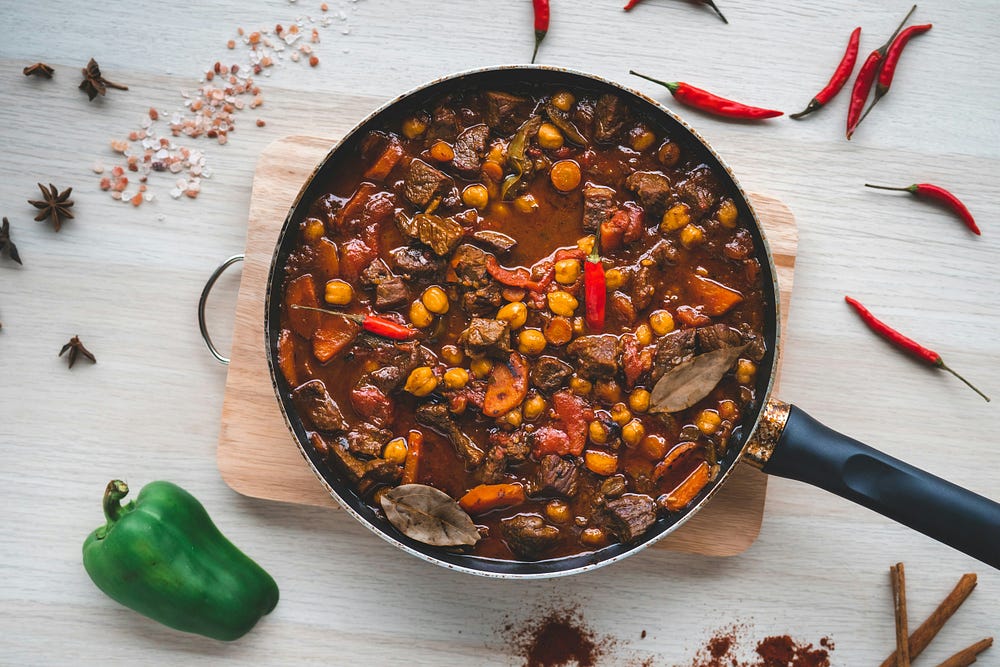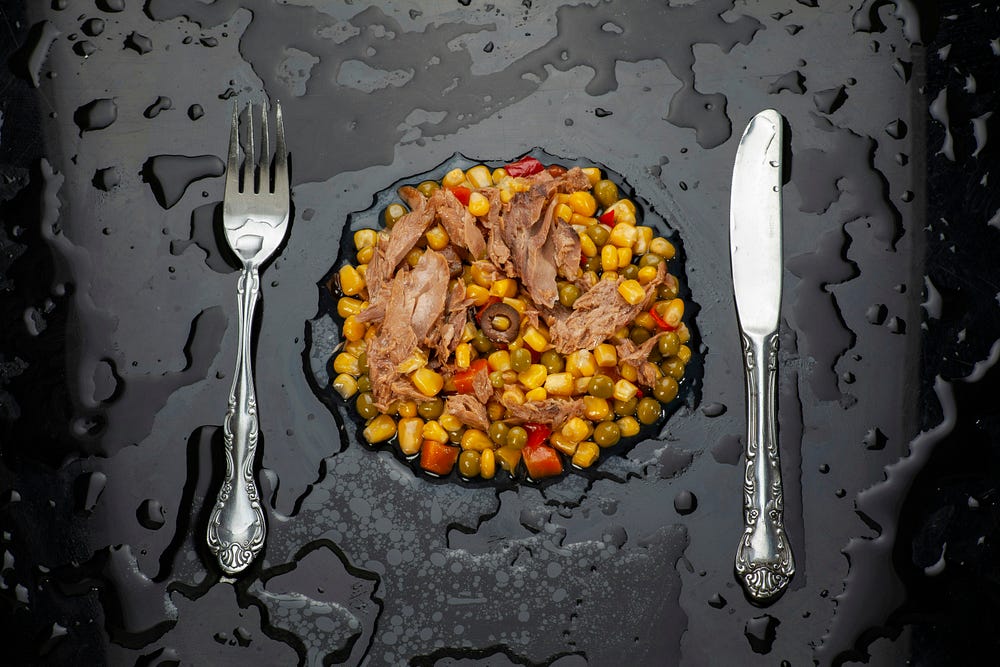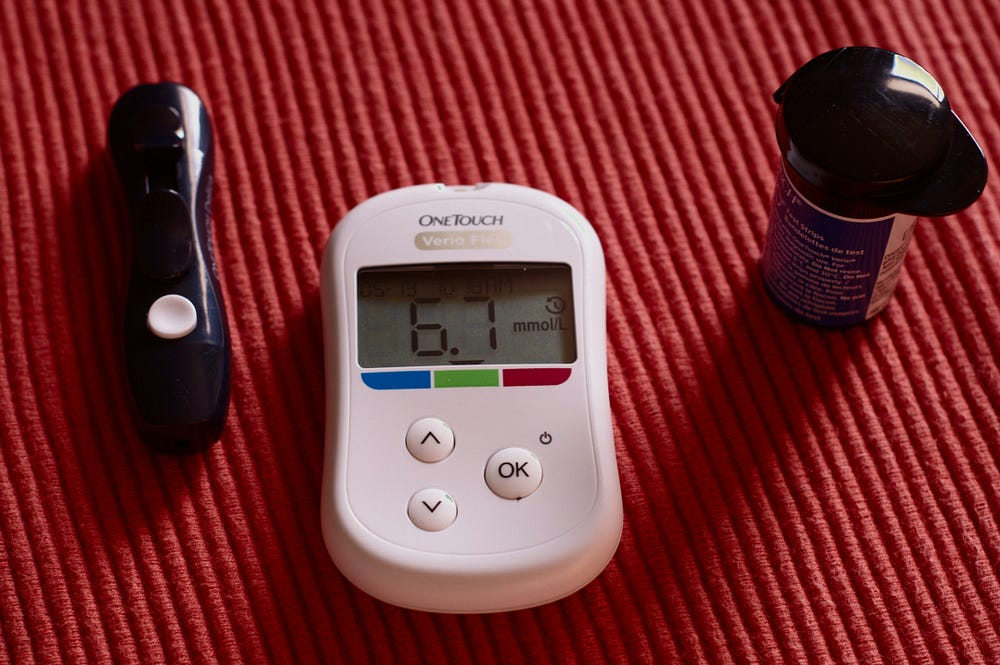Black Chickpea: Health Benefits, Side Effects, and Consumption Strategies
It’s essential to consume black chickpeas responsibly and be mindful of portion sizes to avoid overconsumption and potential side effects.
20 Apr '24
14 min read

It’s essential to consume black chickpeas responsibly and be mindful of portion sizes to avoid overconsumption and potential side effects.
Black chickpeas, also known as kala chana or Bengal gram, are a variety of chickpeas distinguished by their dark colour and slightly smaller size compared to the more commonly known beige chickpeas. Native to the Indian subcontinent, black chickpeas have been a staple ingredient in various cuisines for centuries. They are widely used in traditional Indian dishes such as chana masala, chaat, and curries, as well as in salads, soups, and snacks.
With growing awareness of the importance of a balanced diet and the role of food in overall health, there is a heightened interest in exploring the nutritional value and potential health benefits of various food items, including black chickpeas. Understanding the health benefits and potential side effects of consuming black chickpeas can empower individuals to make informed dietary choices and incorporate these nutritious legumes into their meals.
Black chickpeas are a nutrient-dense legume known for their balanced macronutrient profile. In a typical serving (approximately 100 grams), black chickpeas contain:
1. Protein: Black chickpeas are a rich source of plant-based protein, with about 8–9 grams per 100 grams serving. This makes them an excellent option for vegetarians and vegans looking to meet their protein needs.
2. Carbohydrates: They provide complex carbohydrates, including both dietary fibre and starch. Black chickpeas contain around 27–30 grams of carbohydrates per 100-gram serving, contributing to sustained energy release and satiety.
3. Fats: While black chickpeas are not particularly high in fat, they do contain small amounts of healthy fats, primarily polyunsaturated and monounsaturated fats. These fats are beneficial for heart health and overall well-being.
In addition to macronutrients, black chickpeas are also packed with essential vitamins and minerals, including:
1. Iron: Black chickpeas are a good source of iron, an essential mineral involved in oxygen transport and energy production in the body. Iron deficiency can lead to fatigue and impaired cognitive function.
2. Magnesium: Magnesium is important for muscle and nerve function, blood sugar regulation, and bone health. Black chickpeas provide a significant amount of magnesium, contributing to overall health and well-being.
3. Potassium: Potassium plays a key role in maintaining fluid balance, nerve function, and muscle contraction. Black chickpeas contain potassium, which supports cardiovascular health and helps regulate blood pressure.
4. Vitamin B6: Black chickpeas are a good source of vitamin B6, which is involved in various biochemical reactions in the body, including metabolism, neurotransmitter synthesis, and immune function.
One of the standout features of black chickpeas is their high fibre content. Fibre is essential for digestive health, promoting regular bowel movements and preventing constipation. Additionally, dietary fibre helps control blood sugar levels, improve cholesterol levels, and support weight management by promoting feelings of fullness and reducing appetite. Black chickpeas contain both soluble and insoluble fibre, with approximately 8–9 grams per 100 grams serving, making them an excellent dietary choice for overall health and well-being.
Black chickpeas are a valuable source of plant-based protein, making them an excellent dietary option for vegetarians, vegans, and individuals looking to reduce their consumption of animal products. Protein is essential for building and repairing tissues, supporting immune function, and maintaining healthy skin, hair, and nails. Incorporating black chickpeas into meals can help meet daily protein requirements and support overall health and well-being.
The high fibre content of black chickpeas, combined with their low glycemic index, makes them beneficial for regulating blood sugar levels. Dietary fibre slows down the absorption of sugars into the bloodstream, preventing rapid spikes in blood glucose levels after meals. This can help improve insulin sensitivity and reduce the risk of type 2 diabetes. Including black chickpeas in meals may contribute to better blood sugar control, particularly for individuals with diabetes or those at risk of developing the condition.
Black chickpeas contain nutrients that support heart health, including potassium, magnesium, and fibre. Potassium helps regulate blood pressure by counteracting the effects of sodium and promoting vasodilation, while magnesium supports normal heart rhythm and muscle function. Additionally, the soluble fibre found in black chickpeas helps lower LDL (bad) cholesterol levels, reducing the risk of cardiovascular disease. Consuming black chickpeas as part of a balanced diet may contribute to a healthy heart and lower the risk of heart-related complications.
The high fibre content of black chickpeas plays a crucial role in promoting digestive health. Dietary fibre adds bulk to stool, facilitating regular bowel movements and preventing constipation. Moreover, fibre acts as a prebiotic, nourishing beneficial bacteria in the gut and promoting a healthy microbiome. This can improve digestion, reduce inflammation, and enhance nutrient absorption. Regular consumption of black chickpeas can support a healthy digestive system and alleviate gastrointestinal issues.
Black chickpeas are a nutrient-dense, low-calorie food that can aid in weight management. The combination of protein and fibre in black chickpeas helps promote satiety and reduce appetite, leading to decreased calorie intake and better weight control. Additionally, the slow digestion of carbohydrates in chickpeas helps stabilize blood sugar levels, preventing cravings and overeating. Incorporating black chickpeas into meals can support a healthy weight loss or maintenance plan when combined with a balanced diet and regular physical activity.
Beyond the aforementioned benefits, black chickpeas may offer additional advantages for health and well-being. Some studies suggest that the minerals found in chickpeas, such as calcium, phosphorus, and magnesium, may contribute to improved bone health and reduced risk of osteoporosis. Furthermore, the antioxidants present in black chickpeas, such as flavonoids and polyphenols, may help reduce inflammation and oxidative stress, supporting overall health and longevity. While further research is needed to confirm these potential benefits, including black chickpeas in the diet can be a valuable component of a healthy lifestyle.
One common side effect associated with consuming black chickpeas is flatulence and digestive discomfort. This is primarily due to their high fibre content, which can ferment in the colon and produce gas. Some individuals may experience bloating, abdominal cramps, or increased flatulence after eating black chickpeas, especially if they are not accustomed to a high-fibre diet. To minimize these side effects, it’s recommended to gradually increase fibre intake and drink plenty of water to aid digestion.
While rare, allergic reactions to black chickpeas can occur, particularly in individuals with a history of legume allergies. Symptoms of an allergic reaction may include hives, itching, swelling of the face or throat, difficulty breathing, or gastrointestinal distress. Anyone experiencing severe allergic symptoms after consuming black chickpeas should seek medical attention immediately. It’s essential for individuals with known food allergies to exercise caution and consult with a healthcare provider before incorporating new foods into their diet.
Black chickpeas contain compounds known as purines, which can be metabolized into uric acid in the body. For individuals with gout or other conditions characterized by high levels of uric acid, consuming foods high in purines, such as black chickpeas, may exacerbate symptoms. Additionally, black chickpeas contain oxalates, which can interfere with the absorption of certain minerals like calcium and may contribute to the formation of kidney stones in susceptible individuals. Individuals taking medications or undergoing treatments for such conditions should consult with a healthcare professional before consuming black chickpeas regularly.
While black chickpeas offer numerous health benefits, it’s essential to consume them in moderation to avoid overconsumption and potential weight gain. Like all foods, black chickpeas contain calories, and excessive intake can contribute to a calorie surplus, leading to weight gain over time. Additionally, some preparations of black chickpeas, such as fried snacks or dishes cooked in heavy sauces, may be high in added fats and calories, which can further contribute to excess calorie intake. To prevent overconsumption, it’s advisable to practice portion control and incorporate black chickpeas into a balanced diet that includes a variety of nutrient-dense foods.
Numerous scientific studies have investigated the health benefits of black chickpeas, providing valuable insights into their potential effects on human health. These studies have examined various aspects, including the nutritional composition of black chickpeas, their impact on blood sugar levels, heart health, digestive function, weight management, and potential protective effects against chronic diseases such as diabetes and cardiovascular disease. Research has also explored the bioactive compounds present in black chickpeas, such as antioxidants and phytochemicals, and their role in promoting health and preventing disease.
The evidence supporting the health benefits of black chickpeas is largely promising but varies in strength depending on the specific outcome studied. Some benefits, such as the role of black chickpeas in promoting heart health through their fibre content and impact on cholesterol levels, are supported by robust scientific evidence from randomized controlled trials and observational studies. Similarly, the effects of black chickpeas on blood sugar regulation and weight management have been demonstrated in multiple studies, indicating their potential usefulness in diabetes management and weight loss interventions. However, further research is needed to confirm these findings and elucidate the mechanisms underlying the observed effects.
Despite the growing body of research on black chickpeas, there are still several gaps in our understanding of their health effects and mechanisms of action. For example, while studies have demonstrated the beneficial effects of black chickpeas on various aspects of metabolic health, including blood sugar regulation and lipid metabolism, more research is needed to determine the optimal dosage and duration of black chickpea consumption for maximal benefits. Additionally, further investigation is warranted to explore the potential role of black chickpeas in preventing chronic diseases such as cancer and neurodegenerative disorders, as well as their effects on gut microbiota composition and immune function. Future studies employing rigorous study designs and larger sample sizes will help clarify the therapeutic potential of black chickpeas and inform evidence-based dietary recommendations.
Black chickpeas are generally suitable for consumption by individuals of all age groups, from children to older adults. However, it’s important to consider factors such as chewing ability and digestive tolerance when introducing black chickpeas to infants and young children. For infants, black chickpeas can be introduced as a mashed or pureed food after around 6 months of age, following guidelines for introducing solid foods. As children grow older, they can gradually transition to consuming whole black chickpeas as part of their regular diet. Adults and older adults can incorporate black chickpeas into their meals to reap their nutritional benefits and support overall health.
The recommended daily intake of black chickpeas varies depending on factors such as age, gender, activity level, and overall dietary needs. As a general guideline, adults can aim to consume about 1/2 to 1 cup of cooked black chickpeas per day, which is equivalent to approximately 100–200 grams. This serving size provides a significant portion of daily protein and fibre requirements while contributing essential vitamins and minerals to the diet. However, individual needs may vary, so it’s important to adjust intake based on personal preferences and nutritional goals. Additionally, individuals who are physically active or have higher energy requirements may need to consume larger portions of black chickpeas to meet their dietary needs.
For individuals with specific dietary needs or health conditions, adjustments may be necessary when incorporating black chickpeas into their diet. For example:
— Individuals with diabetes should monitor their carbohydrate intake and consider portion sizes to manage blood sugar levels effectively.
— Individuals with kidney stones or gout may need to limit their intake of purine-rich foods, including black chickpeas, to reduce the risk of exacerbating symptoms.
— Individuals with digestive issues such as irritable bowel syndrome (IBS) may need to monitor their intake of high-fibre foods like black chickpeas and adjust portions to avoid discomfort.
— Pregnant and breastfeeding women may benefit from including black chickpeas in their diet due to their nutritional content, but they should consult with a healthcare provider for personalized dietary recommendations.
Black chickpeas can be enjoyed at any time of the day, but there are certain optimal times to incorporate them into meals to maximize their nutritional benefits and promote satiety. Consider the following:
1. Breakfast: Add cooked black chickpeas to omelettes, breakfast bowls, or breakfast wraps for a protein-rich start to the day.
2. Lunch: Include black chickpeas in salads, wraps, or grain bowls for a nutritious and satisfying midday meal.
3. Dinner: Use black chickpeas as a base or protein component in vegetarian or meat-based main dishes such as curries, stews, or stir-fries.
4. Snacks: Enjoy roasted black chickpeas as a crunchy and satisfying snack between meals.
Pre-soaking black chickpeas before cooking can help reduce cooking time and improve digestibility. To pre-soak black chickpeas, place them in a bowl and cover with water, allowing them to soak overnight or for at least 8 hours. After soaking, rinse the chickpeas thoroughly before cooking. When cooking black chickpeas, it’s important to ensure they are fully cooked to enhance digestibility and minimize the risk of digestive discomfort. This can be achieved by simmering soaked chickpeas in water or broth for approximately 60–90 minutes until tender. Additionally, using a pressure cooker can significantly reduce cooking time for black chickpeas.
Black chickpeas are incredibly versatile and can be incorporated into a wide range of dishes to add flavour, texture, and nutritional value. Here are some suggestions for incorporating black chickpeas into various dishes:
1. Salads: Add cooked black chickpeas to salads for a protein boost and added texture. Combine with fresh vegetables, greens, herbs, and a flavorful dressing for a nutritious and satisfying meal.
2. Soups and Stews: Include black chickpeas in soups, stews, and chilli for a hearty and nutritious addition. They add protein, fibre, and a rich, nutty flavour to these comforting dishes.
3. Curries and Stir-fries: Use black chickpeas as a protein source in vegetarian or meat-based curries and stir-fries. Combine with vegetables, spices, and sauces for a flavorful and satisfying meal.
4. Dips and Spreads: Blend cooked black chickpeas with tahini, lemon juice, garlic, and olive oil to make homemade hummus or other bean dips. Serve with fresh vegetables, whole grain crackers, or pita bread for a nutritious snack or appetizer.
Throughout this article, we’ve explored the nutritional profile, health benefits, potential side effects, and best practices for consuming black chickpeas. We’ve learned that black chickpeas are a rich source of plant-based protein, fibre, vitamins, and minerals, making them a valuable addition to a balanced diet. They offer numerous health benefits, including support for heart health, blood sugar regulation, digestive health, weight management, and potentially even improved bone health. However, it’s essential to be mindful of potential side effects such as digestive discomfort and allergic reactions, as well as to consider individual dietary needs and health conditions when incorporating black chickpeas into meals.
Black chickpeas are not only nutritious but also incredibly versatile, allowing for endless culinary possibilities. Whether used in salads, soups, curries, or dips, black chickpeas add flavour, texture, and nutritional value to a variety of dishes. Their potential health benefits make them a valuable dietary choice for individuals of all ages and dietary preferences. By including black chickpeas in your diet, you can support your overall health and well-being while enjoying delicious and satisfying meals.
I encourage readers to explore the diverse ways in which black chickpeas can be incorporated into their diets, taking into account their personal tastes and nutritional needs. Experiment with different recipes and cooking methods to discover how you enjoy black chickpeas best. However, it’s essential to consume black chickpeas responsibly and be mindful of portion sizes to avoid overconsumption and potential side effects. By incorporating black chickpeas into your meals in moderation and alongside a variety of other nutritious foods, you can reap their numerous health benefits and enhance your overall diet quality.
— — — — — — — — — — — — — — — — — — — — — — — -
Have a look!
StartUp Health/ World Health Organization/ Julia Serano/ Anakh Sul Rama/ Hammad Hassan/ Sophie Lucido Johnson/ Matteo Mameli/ Key Cellular Nutrition/ Food Republic/ World Food Program USA/ Kara Fasone/ Patrick OConnell/ Paul S. Marshall/ Awe & Wonder/ Medium en español/ Adrian CDTPPW/ Based On A True Story/ Izzie Ramirez/ Slow Food USA/ Foo Bar/ Gideon M-K; Health Nerd
Thank you, all fellow writers. 😍
Category:Health and Wellness
Written by Younus M. Bhat
I am a columnist, author, and a PhD scholar with a passion for sharing my knowledge and expertise with others. Visit: https://www.theviralpost.online/ Email: [email protected], Stay Happy😊
0 Followers
0 Following









